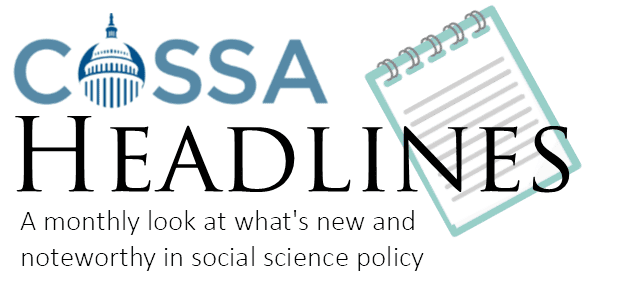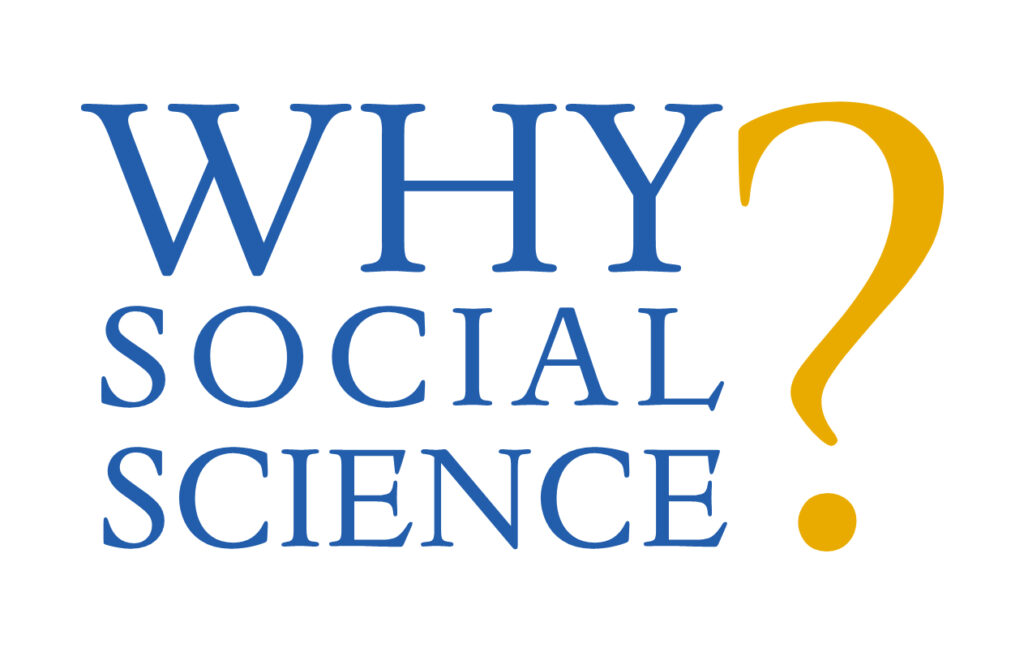Issue 5 (March 5)
NSF selects Kaye Husbands Fealing to lead the Social, Behavioral, and Economic Sciences Directorate
On February 29, the National Science Foundation (NSF) announced that Kaye Husbands Fealing has been selected to lead the Directorate for Social, Behavioral and Economic Sciences (SBE). Her appointment will begin on April 22.
Husbands Fealing is dean of the Georgia Institute of Technology Ivan Allen College of Liberal Arts and former chair of the Georgia Tech School of Public Policy. She specializes in the science of science and innovation policy, the public value of research expenditures and the underrepresentation of women and minorities in STEM fields and the workforce. Husbands Fealing developed and was the inaugural program director for NSF’s Science of Science and Innovation Policy program and co-chaired the Science of Science Policy Interagency Task Group. At NSF, she also served as an Economics program director.
In the release announcing Husbands Fealing’s appointment, NSF Director Sethuraman Panchanathan stated, “Dr. Husbands Fealing’s expertise and experience as a leader both in academia and government are rich perspectives that we need as we advance this agency into the future…Kaye has an excellent track record of fostering scientific discovery and the mission of NSF, and she brings the kind of enterprise focus that we need to promote the progress of science and advance the nation’s health, prosperity, and welfare.”
Husbands Fealing holds a doctorate in economics from Harvard University, and a bachelor’s in mathematics and economics from the University of Pennsylvania.
Read the full announcement on the NSF website here.
Advocacy Day Spotlight: Early Bird Registration EXTENDED!

Early bird registration for COSSA’s tenth annual Social Science Advocacy Day has been extended through THIS WEEK ONLY! There will not be another early bird price extension, so don’t wait! Register here before the price increases this weekend.
Social Science Advocacy Day will be taking place April 8-9, 2024 in Washington, DC and is open to anyone affiliated with a COSSA member organization or university. Not a member? Learn how here.
If your organization is interested in becoming a sponsor of Social Science Advocacy Day, learn more here.
Visit the COSSA website for the latest information on Social Science Advocacy Day and to view the recording of the recent informational webinar.
Headlines Webinars continue March 27

COSSA’s 2024 Headlines Webinar series will continue to feature discussions with leaders of federal science agencies, providing opportunities for the social and behavioral science community to learn about agency research programs, funding opportunities, and priorities.
Upcoming Webinars:
- March 27 will be the next webinar, featuring a discussion about the research and education programs and priorities of the STEM Education Directorate at the National Science Foundation. RSVP and learn more here.
- April 23 will feature a discussion about the research programs and priorities of the Office of Behavioral and Social Sciences Research at the National Institutes of Health. Save the date! RSVP and additional details to come.
Did you miss February’s webinar? You can watch the recording now to catch up on our discussion about the research and data activities within the National Institute of Justice and Bureau of Justice Statistics.
Headlines is a webinar series available to COSSA member organizations.
Camille Gamboa from Sage Answers “Why Social Science?

The recent Why Social Science? post comes from Camille Gamboa from Sage who interviews Euan Adie, Overton’s managing director, to learn more about the large impact that social science makes on policy and his work creating tools to connect the scholarly and policy worlds.
Read on for more.
The Latest on the Government Shutdown and Funding Efforts
On February 29, the House and Senate successfully passed a stopgap bill. This legislative action ensures that the government will continue to operate without interruption at least until the next deadlines. The Senate’s approval came with a 77 to 13 vote, showcasing bipartisan support for the measure. The bill was signed into law by President Joe Biden on March 1.
The stopgap bill is a temporary solution, extending funding until March 8 for a significant portion of government spending, based on a prior agreement aimed at providing a substantial portion of government funding. The remaining federal government funds are set to expire on March 22, highlighting the urgency for a more permanent funding solution.
The House and Senate Appropriations Committees released the first package of final fiscal year (FY) 2024 appropriations bills. The summary of the package is available here and the final bill text is available here. The Consolidated Appropriations Act, 2024 will be considered in the House this week.
The latter six bills are considered more controversial, casting doubt on Congress’s ability to meet the March 22 deadline.
Stay tuned to COSSA’s continued coverage of the appropriations process.
Bipartisan Task Force on AI Launched
On February 20, a bipartisan Task Force on Artificial Intelligence (AI) was launched by Speaker of the House Mike Johnson (R-LA) and Democratic Leader Hakeem Jeffries (D-NY), signaling a step towards addressing the legislative challenges posed by the rapid advancement of AI technologies. Chaired by Representative Jay Obernolte (R-CA) and co-chaired by Representative Ted Lieu (D-CA), the Task Force comprises 24 members from both parties, charged with producing a comprehensive report that includes guiding principles, recommendations, and policy proposals on AI. This initiative aims to bridge the legislative gap in AI regulation, ensuring the U.S. harnesses the benefits of AI while mitigating its risks.
The formation of the Task Force addresses a range of concerns, from AI’s impact on elections and labor to issues of algorithmic bias, healthcare, data protection, and the geopolitical competition with China. Members are also focused on existential risks posed by future AI systems. By bringing together a diverse group of lawmakers with expertise in AI and related fields, the Task Force seeks to facilitate a coordinated legislative approach that transcends partisan divides and committee jurisdictions, aiming to shape the future of AI regulation in the United States.
Stay tuned for COSSA’s continued coverage on AI.
DOJ Announces Grant Funding Opportunities
The Department of Justice (DOJ) announced its fiscal year (FY) 2024 Program Plan outlining anticipated grant funding available for advancing public safety. Groups eligible for applying include community-based organizations; state, local, Tribal, and territorial government agencies; research institutions; and nonprofit entities. There are over 200 grant programs awarded across three grantmaking components: Office of Community Oriented Policing Services (COPS Office), Office of Justice Programs (OJP), and Office on Violence Against Women (OVW). Within OJP, there are six program offices that offer funding opportunities: Bureau of Justice Assistance (BJA); Bureau of Justice Statistics (BJS); National Institute of Justice (NIJ); Office of Juvenile Justice and Delinquency Prevention (OJJDP); Office for Victims of Crime (OVC); and Office of Sex Offender Sentencing, Monitoring, Apprehending, Registering, and Tracking (SMART). The purpose behind these grants is to support effective progress and improvement of the justice system.
The DOJ has an online guide on submitting applications, and prior grants approved by OJP can be found online. For additional support, visit SAM.gov. Final funding amounts are subject to change according to the availability of appropriations.
Individual grant deadlines can be found here.
Mental Health Director Dr. Joshua Gordon Departs from NIMH
On February 29, National Institutes of Health (NIH) Director Dr. Monica Bertagnolli announced the departure of Director Dr. Joshua Gordon from the National Institute of Mental Health (NIMH). As previously reported by COSSA, Director Gordon joined NIMH in August 2016 after previously serving as an associate professor of Psychiatry at Columbia University and as a research psychiatrist at New York State Psychiatric Institute (NYSPI). Dr. Gordon will return to Columbia as the Chair of the Department of Psychiatry at the Vagelos College of Physicians and Surgeons and Psychiatrist-in-Chief of the New York-Presbyterian Hospital campus at Columbia University Irving Medical Center. He will also return to NYSPI to serve as director.
As NIH searches for the next Director of NIMH, Deputy Director Shelli Avenevoli will serve as Acting Director. Deputy Director Avenevoli joined NIMH in 2001 and received her Ph.D. in Developmental Psychology from Temple University. Avenevoli also completed a NIMH-funded postdoctoral fellowship in psychiatric epidemiology at Yale University School of Medicine prior to joining the agency.
The full announcement can be found here.
APSA Seeks Executive Director
The American Political Science Association (APSA) has initiated a search for an Executive Director. The Executive Director is expected to lead and represent the Association through developing strategic plans and goals, communicating with members, managing the staff and budget, and overseeing Association activities.
A full list of responsibilities can be found in the job description here. The candidate is projected to begin the position around August 2024. APSA is a COSSA governing member organization.
Applications will remain open until the position is filled and questions about the job posting can be directed to recruiter@apsanet.org.

